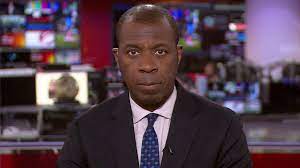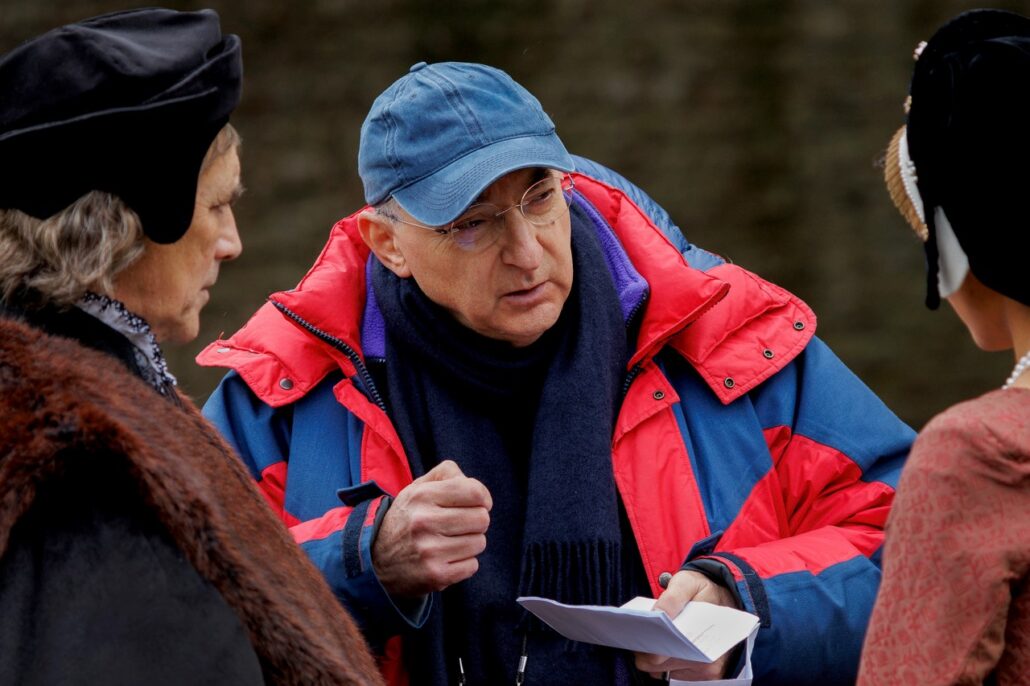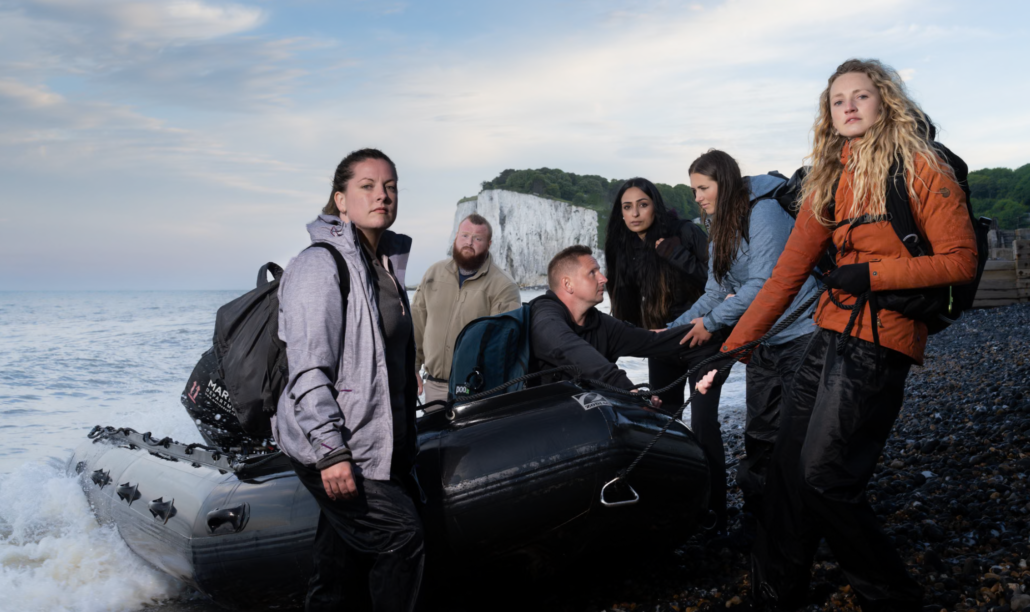It’s autumn and while we’ve got a new monarch and a (relatively new) prime minister and culture secretary, public service broadcasters are wrestling with the same old issues that were challenging it last spring. Not least among these are funding difficulties – particularly at the BBC which, following a low funding settlement, is putting its emphasis on a “digital first” strategy which, it is hoped, will see reduced costs while attracting younger audiences and bringing larger audiences to iPlayer and BBC Sounds.
At the Sandford St Martin Trust we have some sympathy with this strategy: from where we’re standing the future of broadcasting does indeed look digital. And who would quibble with the convenience and choice offered by play-on-demand services? Still, there are concerns about how this strategy will impact the significant numbers of people without broadband or easy access to the internet, and further, about to what degree financial difficulties will push PSBs towards prioritising more commercial content to the detriment of less-commercial genres such as news (local news especially), children’s broadcasting and, of course, religious and ethical content.
These concerns have been compounded by Ofcom’s current proposal to “take a step back” from its role as a regulator of PSBs and the BBC in particular by allowing them to set their own targets for key public service genres. At a time when the BBC is under so much financial and commercial pressure, we feel it’s important that there are strong mechanisms in place to ensure it delivers fully on its public service remit of providing an excellent quality and quantity of core PSB content for all UK citizens. Unfortunately, there is ample evidence that once quotas are removed for what Ofcom calls “at-risk” genres, then the content declines even further. This was the focus of our recent response to Ofcom’s consultation on the future regulation of the BBC.
Which brings us back round to the funding issues currently facing the BBC. Over the summer the House of Lord communications and digital committee resolved that public funding for the BBC remains necessary – what they were less clear about was what form this funding should take. They felt a shake up of the licence fee – which provides roughly two-thirds of the BBC’s £5bn annual income – was inevitable. Partly because dependence on the licence fee means the BBC is also dependent on the good will of whatever government is in power when funding is reviewed. Partly because in our brave new digital future it might be difficult to identify who is a genuine user of PSB content. And not least because some feel the licence fee is too blunt a tool by nature – being levied as it is at a rate irrespective of a person’s ability to pay.
If all this is true, the question raised is “What next?” If the licence fee is obsolete then what should it be replaced by?
And, if public service broadcasting is to include core content like local news, comedy, drama, children’s programming and religious and ethical content, what are you willing to pay for it?
_________________________________________________________

Clive Myrie is a BBC journalist and broadcaster. In June his investigation for Panorama “Is the Church Racist?” won the Sandford St Martin 2022 Journalism Award. In September, supported by the Media Society he delivered the RTS’s Steve Hewlett Memorial Lecture, during which he made the case for the continuance of the licence fee. (Watch it here.) A shortened version of his lecture appeared in The Observer on 4 September and is reproduced below.
Opinion is cheap and easy. The BBC’s mission is to deliver facts and evidence
Indulge me for a few seconds and close your eyes. Now, imagine a world without the BBC. What’s it like in the darkness? No EastEnders or RuPaul’s Drag Race. No Newsnight or Question Time. No Snog, Marry, Avoid? or Ten O’Clock News. No Glow Up or Strictly, no Proms, no Radio 4 or 3 or iPlayer. No World Service, no Line of Duty or Peaky Blinders, no Attenborough and Planet Earth and, heaven forbid, no Mastermind!
What kind of a world is it for you? For many, it would be a pretty poor one. Others would disagree. Their reasoning might be based on a deeply held belief that the BBC is full of lefties, especially in its news division. Hooray, they’d say, no more woke news and pernicious identity politics. No more wokey blokeys, telling me I can’t sing Rule, Britannia! at the Last Night of the Proms. No more banging on about the Lionesses having no black players!
Others might cheer the demise of the BBC for exactly the opposite reason. They might argue that at last there’s an end to all the rightwing propaganda. No more pandering to reactionary forces, caving in to government pressure at every turn. It’s a BBC that’s cowed, they say, by the powerful, an institution that’s lost its nerve and refuses to call out the bleedin’ obvious. It’s a broadcaster ill equipped to tackle a post truth world of populists and liars.
We seem to live in an age of individual truths and opinion, where what constitutes the truth on any given topic is in the eye of the beholder. To strive for an objective truth is somehow old-fashioned, even boring. It’s messy too. Impartiality is an analogue concept in a digital world. It sounds technical, bureaucratic… very BBC! So I’m going to use a different word – fairness. Impartiality is simply what’s fair.
The public wants the BBC to stand for something, and surely that must be fairness. Opinion is one side of an argument, and putting one side of an argument isn’t honest, some might argue it isn’t decent, or morally acceptable in news and current affairs. I would argue that it certainly isn’t fair.
The quest for a reality that we can all trust regardless of who we are, is vital to a proper understanding of our world, and crucial to the smooth running of any democracy. For a public service broadcaster, crucially one funded by a universal levy – the licence fee – it is stark staringly obvious that facts and objective truths must be paramount to maintain the universality of the BBC. It’s an organisation that doesn’t belong to the government or a board of managers. It belongs to many millions of licence fee payers who have all kinds of opinions and beliefs. Facts are the holy grail, speaking objective truth to power is vital. Bend the truth to curry favour, self censor to get an easy ride and you abuse the trust of licence fee payers.
Objective truth telling which the BBC strives for is valued by the majority of people. The Reuters Institute for the Study of Journalism at Oxford University, in its Digital News Report for 2022, showed that despite levels of trust falling across broadcast media and print, the BBC is still the most trusted news brand in the UK.
Attempts to establish objective truths are needed now more than ever. Anyone can have an opinion, they’re two a penny, and opinions are coloured by a whole range of variables. Your background, education, race, gender, politics and so on. That’s the point about opinion, it’s individual to who you are. But as a former editor of the Guardian, CP Scott, famously wrote: “Comment is free, facts are sacred.”
Problems arise when opinion and polemics replace facts. And there’s a simple reason for that
I asked you to close your eyes and imagine a world without the BBC. Well, the corporation recently tried a similar experiment, launching what it called, rather darkly, a deprivation study. Eighty households had BBC content taken away from them for nine days (including two weekends, so no Match of the Day, no weekend news, no Strictly). Indeed, no TV and radio, recipes, podcasts or access to any social media platforms linked to the corporation. Around 200 people were involved in the study and there was an emphasis on those who, given the chance, would forgo the BBC so they wouldn’t have to pay the licence fee and those who said the licence fee was too high.
The results, which were revealed in April, found that before the experiment began, 30 households said they wanted to pay nothing and not receive the BBC’s services; another 30 said they would want to pay less than the current licence fee, while the remaining 20 said they’d pay the current fee or more. Afterwards, of the 60 who were not keen on the price, 42 said they would pay the full fee or more, meaning 70% changed their minds.
It’s doesn’t belong to the government or a board of managers. It belongs to many millions of licence fee payers
Only one household out of the 20 who initially supported the licence fee said they’d rather pay less. After having been deprived of the BBC’s output for a little over a week, many said they missed the BBC for trustworthy news. After their hiatus, the participants were handed an envelope with the value of that nine days of content, in relation to the overall licence fee per year. It was less than £4.
Many undervalue the BBC at their peril. As a foreign correspondent for many years based around the globe, I know how much people from other countries appreciate BBC News. And now is the time, in an age of lies and deceit and propaganda with no shame, when the BBC is needed the most.







Leave a Reply